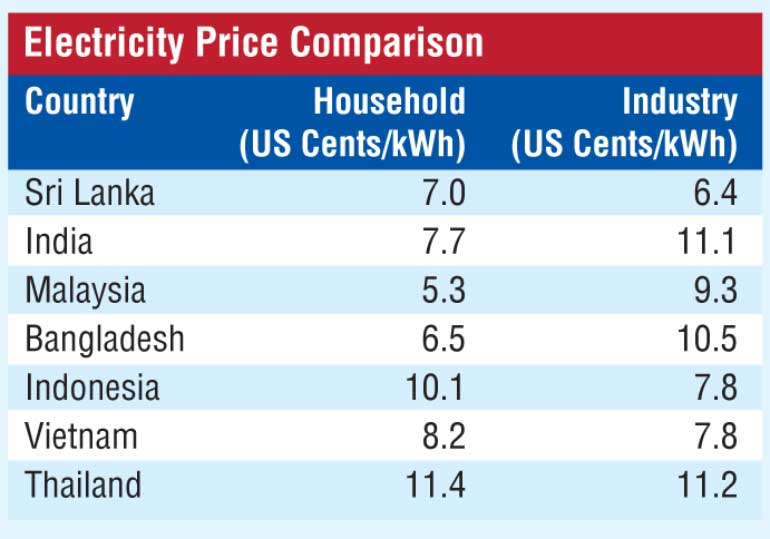Tuesday Feb 17, 2026
Tuesday Feb 17, 2026
Tuesday, 25 January 2022 01:53 - - {{hitsCtrl.values.hits}}
 |
|
PUCSL Chairman Janaka Ratnayake - Pic by Lasantha Kumara |
The Public Utilities Commission of Sri Lanka (PUCSL) yesterday hinted at a possible upward revision in electricity tariffs, noting it was crucial to ensure financial viability of the State-owned CEB to provide uninterrupted power supply.
“Following the 25% tariff reduction in 2014, the Commission noticed that there was no revision.
It is the responsibility of the utility to set the tariffs and obtain approval from the PUCSL,” PUCSL Chairman Janaka Ratnayake told the Daily FT.
“We are responsible to ensure financial viability of regulated entities, and thus, the Commission has brought it to the notice of the Ceylon Electricity Board (CEB).”
According to Ratnayake, the CEB is incurring a loss of around Rs. 40 per each electricity unit (using diesel) and Rs. 4.50 (hydro and other sources) as a result of providing its service at a concessionary rate.
“Even amidst such concessions, the collective dues of consumers to the CEB and Lanka Electricity Company Ltd. (LECO) accounts to over Rs. 50 billion. It is easy to accuse State-owned Enterprises (SoEs) are not profit-making organisations, but how can it, when everything is given at concessionary rates. Our attention has been drawn to address,” he explained.
“To address the dues by the customers, they are now given an opportunity to pay monthly bills and arrears in three equal instalments.”
Regionally too, the PUCSL Chief pointed out that Sri Lanka had the lowest tariffs for electricity comparatively.
Ratnayake also highlighted that the CEB has not set the tariffs as per the cost-effective methodology approved by the Commission since 2014.
“Considering the inflation and cost escalation of others, the CEB should take necessary action as per Section 30 of the Sri Lanka Electricity Act on tariff revision to ensure financial viability of the utilities which are required to ensure uninterrupted power supply,” Ratnayake added.
The PUCSL Chairman said the Commission would follow the cost-reflective mechanism for approving tariffs, and that if the Government decides to subsidise as a policy then the subsidy should be directly passed on to the utilities as per Section 30 of the Sri Lanka Electricity Act.
